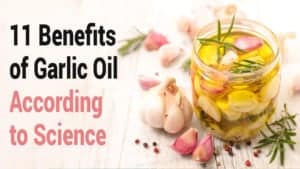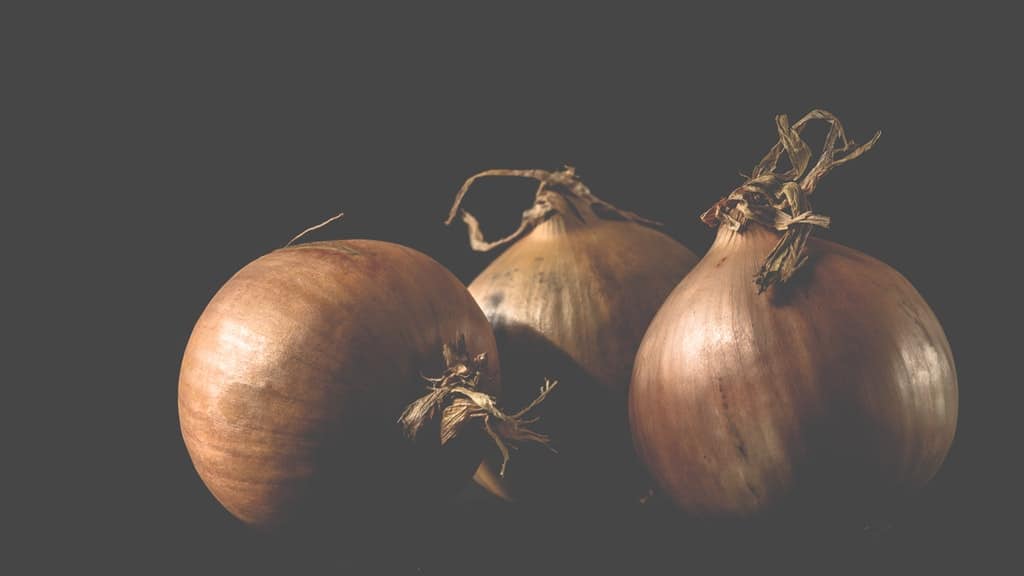Did your mother and grandmother ever eat your vegetables? Some people aren’t interested in healthy eating just because it is good for them. To them, junk food tastes better. Fortunately, it’s easy to work tasty onions into the diet for their many health benefits.
Onions’ health benefits are undeniable. The vegetable is among many whose health benefits don’t change between cooking it and eating it raw. Besides tasting good, veggie has a long history of doing wonders for the body.
A Short History of Onions
Healers recommending food as medicine dates back thousands of years to ancient Egyptians, Chinese, Indians, and Asians.
It’s funny to visualize our ancestral moms telling their kids to eat their veggies.
The vegetable was known throughout the ancient world, so it’s difficult to pinpoint one particular place as its origin. Archaeology has even found onions in Pompeii and evidence that ancient Romans added it to spice up their cooking. Europeans brought it with them to America only to see the vegetable already being enjoyed by the natives.
Onions Are Wondrous Things
In the ancient world, Roman and Greek athletes ate tons of vegetables, drank juice, and rubbed the plant all over their bodies, believing it made them stronger and faster. Pliny the Elder wrote that the Romans considered the vegetable beneficial for repairing vision, aiding sleep, stopping toothache, dysentery, and healing sores.
Some people used this root vegetable in spiritual healing. For example, when the plague made its way around the world, people would hang onions as a charm to chase away evil spirits.
Ancient Indians considered the vegetable beneficial to the heart, stomach, and joints. The plant was used in the Middle Ages for curing sores and hemorrhoids.
How You Benefit From Onions Today
Healthy eating has always depended on the health benefits of fresh fruits and vegetables. Despite the watery eyes and the sometimes strong smell and taste, this hearty vegetable does a lot of good for the body.
There are numerous types of onions, like leeks, scallions, chives, shallots, and more, but red, white, and yellow bulbs contain the highest concentration of the nutrients that prevent or help heal diseases.
The vegetable contains phytonutrients or nutrients from plants and flavonoids or what gives flowers and plants their colors and aroma. For example, veggie is full of antioxidants, just like berries.
They contain Vitamins A, B-6, K, and C. Minerals and other nutrients you’re eating are niacin, choline, calcium, iron, manganese, magnesium, copper, phosphorus, zinc, potassium, and selenium. There’s also sulfur, which is an amino acid. The sulfur in cells in the vegetable makes you tear up when you cut into it.
Fun Fact: The longer it’s in the ground, the sweeter it becomes. On the flip side, the longer it’s in the field, the fewer nutrients. Vidalia or other brands of sweet onion might taste better, but you don’t get as much good from them. What are the 11 health benefits you should not ignore?
11 Proven Benefits of Eating Onions
1. Bone Health
Due to their genetic makeup, women suffer bone loss worse than men. When women eat this vegetable, they have dense bones, not susceptible to fractures. Without boring you with long scientific terms, the GPCS in the plant stops the breakdown of the bones and osteoporosis, and bone loss.
2. Heart Health
Two threats to the heart are blood clots and LDL or bad cholesterol. Onions are classified as fiber, which is beneficial in preventing blood clots. The antioxidants in the vegetable slow down bad cholesterol, which limits oxidation and boosts blood circulation and blood pressure.
3. Diabetes
Because there are fewer carbs in veggies, they don’t stay in the bloodstream, raising blood sugar levels. They lower plasma blood glucose and inhibit insulin resistance. The vegetable contains chromium, which has been shown to control blood sugar and prevent diabetes.
4. Fertility
The vegetable may have an impact on fertility by improving sperm health. Studies on rats have shown that sperm count increased as well as testosterone. The rats ate lots of the vegetables in twenty days, so eat up, guys!
5. Colds And Flu
Mothers and grandmothers from antiquity have cut the vegetable in half and rubbed it on chests to combat congestion and help the breathing. It turns out this is a great way to fight colds and flu.
Medical professionals think vegetable fights inflammation and mucus buildup in the lungs and sinuses. The antibacterial properties in the plant are useful for getting rid of infections.
Fun Fact: You won’t find this in any prestigious medical journal, but putting a slice of onion next to a painful tooth or on the bottom of the foot held on by a sock is useful for drawing out the poisons in the body. Got a pain in the ear, jaw, or another body part? Hold a slice of onion against it for a couple of hours, and the pain will disappear. It might only be an old wive’s tale, but it works.
6. Asthma
Onions are packed with anti-inflammatory compounds. One of them, quercetin, is suitable for allergies and asthma. This compound reduces the inflammation in the little branch-like areas in the chest, so asthmatics and allergy sufferers can breathe.
7. Cancer
Antioxidants stop the cells from being damaged by free radicals or random cell-destroying agents. Cancer takes a normal healthy cell and mutates it into something cancerous. This humble little vegetable’s antioxidants stop the cells from mutating and stops tumors from growing. The plant helps or prevents several different types of cancer, including stomach and ovarian cancers.
8. Gut Health
The immune system and the gut work closely together for the body’s optimal health. The vegetable is known for its fiber and prebiotics, which help the healthy bacteria in the stomach to grow and work properly. These healthy bacteria prevent the bad ones from causing gut trouble before spreading into the bloodstream.
When all this works together, the gut is healthy, the immune system is operating at peak performance, and inflammation is a thing of the past.
9. Sleep
Having trouble sleeping? Eat an onion. Research shows that the prebiotics in this vegetable aid in gut health. The gut then sends the brain a signal saying that stress is being dealt with, and the body can go to sleep. The research worked on rats in a study who went to sleep after ingesting the vegetable.
10. Skin And Hair
Hair
One of the nutrients found in the body and needed by the body is the amino acid sulfur. The hair follicles require it for growth and sturdy hair. A study was done with both men and women using vegetable juice on their hair.
After four weeks, 74 percent of the participants experienced some hair growth. After six weeks of using the juice, 87 percent experienced hair regrowth. Of the participants, the males experienced more hair regrowth.
The antioxidants in the vegetable are thought to combat the free radicals causing hair damage due to aging. The anti-microbial properties in the vegetable fight the infections that sometimes cause scalp damage. Together, these promote healthy hair follicles, resulting in healthier, stronger hair.
 Skin
Skin
Vitamins and minerals have positive effects on the epidermis. Vitamin C, for instance, nourishes the skin. Vitamins A, C, and E protect the skin from the harmful effects of UV rays from the sun. The antioxidants in the vegetable remove toxins from the body, giving skin a healthy glow.
Breakouts won’t happen due to the veggie’s anti-bacterial, anti-inflammatory, and antiseptic properties. The quercetin and sulfur in these veggies help prevent the signs of aging.
Weight Control
Belly fat is one of the most dangerous types of weight due to its proximity to and ill effects on the heart. To combat this, the metabolism must be spurred to action. Vegetable nutrients are an essential part of healthy eating for this exact reason. They provide fiber and the vitamins and minerals necessary to inject energy into the metabolism.
The vegetable contains only 64 calories per serving, is 89 percent water, and along with the fiber, fills you up without adding substantially to your weight. Cooked or raw, the vegetable is not only good for you, but it helps in weight control as well.
 Final Thoughts On The Healthy Benefits of Eating Of Onions
Final Thoughts On The Healthy Benefits of Eating Of Onions
From ancient times up to today, healthy eating has included a variety of foods for different health benefits. Vegetables give us the fiber we need for proper digestion, the vitamins and minerals for appropriate body and cell function. If they taste good and add interesting texture to our foods, that’s a great bonus. The vegetable under consideration supplies all of that.
Eating the vegetable before it’s completely mature doesn’t supply much if any, of the beneficial nutrients we need. The plant’s red, white, and yellow varieties provide these nutrients, so stick with them. Remember that the sweeter varieties of veggies don’t have the nutrients you need.
So get out there and buy some onions!














 Community
Community

